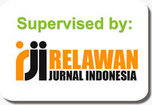MOBILE PRIVACY AWARENESS OF HIGHER EDUCATION STUDENTS IN PLATEAU STATE NIGERIA
Abstract
Keywords
References
References
Lea D, Bradber J, Oxford Advanced Learners Dictionary, 10th Edition. Oxford, United Kingdom: Oxford University Press, 2020.
Terranova. Data privacy day 2021: 6 best practices for your end users.
Cavoukian A, Online privacy: make youth awareness and education a priority, Information and Privacy Commissioner of Ontario, Ontario, Canada, 2009.
Trend Micro. Data privacy day: why data privacy awareness is important. 2015.
Merton-Mccann A. Privacy awareness week 2019 protect your online privacy. 2019.
Mari A. Data privacy awareness grows in Brazil. 2020.
Genetec. 75% Of Americans Very Concerned About Online Privacy, But Most Don't Take Any Significant Action. 2021.
ITBE Staff. Study Finds Mobile Data Privacy Concerns Remains High; Awareness Growing. 2013.
Khalfan A, Information security considerations in IS/IT outsourcing projects: a descriptive case study of two sectors. International Journal of Information Management. 2004; 24: 29-42.
Stanton J.M, Mastrangelo P. R, Stam K. R and Jolton J, Analysis of end user security behaviors, Computers and Security. 2005; 24: 124-133.
Liu R, Cao J and Yang L, Smartphone privacy in mobile computing: issues, methods and systems. Information and Media Technologies. 2015; 10: 281-293.
Soumelidou A and Tsohou A, Towards the creation of a profile of the information privacy aware user through a systematic literature review of information privacy awareness, Telematics and Informatics.2021; 61: 101-120.
Paramarta V, Jihad M, Ardhian D, Chandra H, Puspa I.S and Hidayanto N. A. Impact of user awareness, trust, and privacy concerns on sharing personal information on social media: facebook, twitter, and Instagram. International Conference on Advanced Computer Science and Information Systems. Yogyakarta, Indonesia. 2018; 271-276.
Tuunainen K.V, Pitk ¤nen O, and Marjaana H. Users awareness of privacy on online social networking sites case facebook. 22nd Bled eConference eEnablement: Facilitating an Open, Effective and Representative eSociety. Bled, Slovania. 2009; 1-17.
Ali M.N.Y, Rahman M.L and Ifrat J. Security and privacy awareness: a survey for smartphone user. International Journal of Advanced Computer Science and Applications. 2019;10: 483-488.
Alshehri A, Clarke N.I and Li F. Privacy enhancing technology awareness for mobile devices. Proceedings of the Thirteenth International Symposium on Human Aspects of Information Security & Assurance. Nicosia, Cyprus. 2019; 74-88.
Baazeem R and Qaffas A, Benson V and Mcalaney J. The relationship between user religiosity and preserved privacy in the context of social media and cybersecurity. Emerging Cyber Threats and Cognitive Vulnerabilities. Cambridge, MA: Academic Press. 2020. 93-116.
Bartha S, De Jong M.D.T, Junger M, Hartel P.H and Roppelt J.C, Putting the privacy paradox to the test: online privacy and security behaviors among users with technical knowledge, privacy awareness, and financial resources. Telematics and Informatics 2019; 41: 55-69.
Minch R.P, Privacy issues in location-aware mobile devices. Proceedings of the 37th Hawaii International Conference on System Sciences, Big Island, Hawaii. 2004; 1-10.
Wang H, Lee M.K.O and Wang C. Consumer privacy concerns about internet marketing. Communications of the ACM. 1998; 41(3): 63-70.
Karygiannis A, Antonakakis E, Barley M, Mouratidis H, Unruh A, Spears D, Scerri P and Massacci F. Security and privacy issues in agent-based location-aware. Safety and security in multiagent systems. Lecture Notes in Computer Science. 2009; 4324: 1-21.
CISA. Security tip (ST19-003) - privacy and mobile device apps. 2019.
O. Kulyk, B. Reinheimer, L., Aldag, M., Peter N., Gerber, and M. Volkamer. Security and privacy awareness in smart environments - a cross-country investigation. AsiaUSEC 2020. Kotakinabalu Sabah, Malaysia. 2020; 1-18.
GSMA. Research into user perspectives on mobile privacy: Key findings from UK, Spain and Singapore. 2011.
Amin M, Alam N, Dhahirl D.F, and Hadiyat Y.D. Security and privacy awareness of smartphone users in Indonesia. Journal of Physics: Conference Series. 2021; 1882: 1-11.
Ruhwanya Z.S. Attitudes toward, and awareness of, online privacy and security: a quantitative comparison of East Africa and U.S. internet users. MS Thesis. Kansas State University, United States. 2015.
Prange S, Shams A, Piening R, Abdelrahman Y, and Alt F. PriView exploring visualisations to support users privacy awareness. ACM Conference on Human Factors in Computing. 2021; 1-18.
Li A, Qinghua L and Gao G. PrivacyCamera: cooperative privacy-aware photographing with mobile phones. 13th Annual IEEE International Conference on Sensing, Communication, and Networking. London, United Kingdom. 2016; 1-9.
Kani-Zabihi E and Helmhout M. Increasing service users privacy awareness by introducing on-line interactive privacy features. Information Security Technology for Applications (NordSec 2011), Lecture Notes in Computer Science. 2012; 7161: 4-10.
Giovanni I and Hong J. End-user privacy in human computer interaction. Foundations and Trends in Human Computer Interaction. 2007; 1(1): 1 137.
Khan J, Abbas H and Al-Muhtadi J. Survey on mobile user's data privacy threats and defense mechanisms. Procedia Computer Science. 2015; 56: 376 383.
Hatamian E. Engineering privacy in smartphone apps: a technical guideline catalog for app developers. IEEE Access. 2020; 8: 35429-35445.
Golden Data Law. Mobile privacy in the US. 2019.
DOI: http://dx.doi.org/10.26623/transformatika.v20i2.5444
Refbacks
- There are currently no refbacks.
| View My Stats |
Jurnal Transformatika : Journal Information Technology by Department of Information Technology, Faculty of Information Technology and Communication, Semarang University is licensed under a Creative Commons Attribution 4.0 International License.









